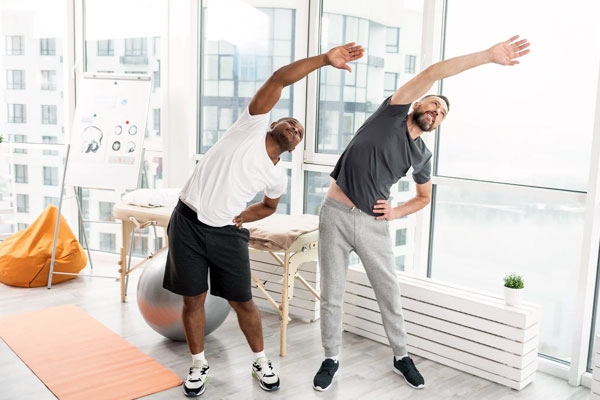
(Image source from: Canva.com)
In the changing landscape of cancer treatment, staying active is being recognized as crucial for both prevention and recovery, not just a choice for a healthy lifestyle. Historically focused on weight management and heart health, consistent physical activity is now supported by solid research showing its benefits in lowering the risk of cancer, enhancing treatment results, and improving life quality during and after treatment. Dr. Devesh S Ballal, a consultant in surgical oncology and robotic surgery at Manipal Hospital Old Airport Road in Bengaluru, explains the importance of exercise in preventing cancer. According to current studies, what influence does staying active have on cancer prevention? Dr. Ballal mentioned, “There are many studies that demonstrate how exercising decreases cancer risk.
Physical activity helps lower insulin resistance and inflammation, boosts the body’s ability to fight disease, and aids in controlling overall inflammation—all important factors in the development of cancer. ”He continued, “Being overweight, aside from its effects on heart health, is a major risk factor for about 13 different cancers, with especially strong connections to breast, uterine, and colorectal cancers. A large study published in the British Journal of Sports Medicine, which included 85,000 people, found that being regularly active could cut cancer risk by up to 26%. Both aerobic exercises and strength training help prevent cancer and provide advantages during treatment and recovery.
The American Cancer Society suggests that adults should aim for at least 300 minutes of moderate exercise each week. Furthermore, recent findings from Tata Memorial Hospital indicate that yoga offers real physical and mental health improvements, particularly for breast cancer patients. Contrary to what many think, resting in bed usually isn't helpful. Supervised workout programs are promoted even when undergoing chemotherapy and radiation. Although fatigue from treatment might limit how hard someone can work out, staying active helps maintain muscle, lessen tiredness, and boost overall health. It’s essential that exercise plans are tailored to each person’s abilities and restrictions to ensure they are safe and effective.
Exercise is quickly becoming an important part of long-term care for cancer patients. A significant study published in the New England Journal of Medicine found that having a planned exercise program for those recovering from colon cancer surgery and chemotherapy lowered the chance of cancer coming back by 28% and the chance of dying by 37%. This benefit is similar to what chemotherapy offers, highlighting how important movement can be as a form of treatment. Indeed, organizations like the American Cancer Society and the National Comprehensive Cancer Network (NCCN) provide helpful guidelines for including exercise in recovery plans. The NCCN also specifies which patients may need to get medical approval before starting an exercise program. For instance, people with osteoporosis should stay away from high-impact exercisesto prevent fractures.
Research has shown that engaging in regular, supervised physical activity can significantly decrease cancer-related tiredness, even more than medication alone can. Exercise also enhances balance and coordination, which helps alleviate peripheral neuropathy caused by chemotherapy. In simple terms, moving around plays a crucial role in reducing side effects and supporting overall recovery. Physical activity is no longer merely an additional tool; it has become a key element of cancer treatment. With increasing evidence highlighting its ability to prevent cancer, improve treatment results, and boost quality of life, exercise is now acknowledged as an essential part of oncology care—allowing patients to take an active role in their journey to recovery.












